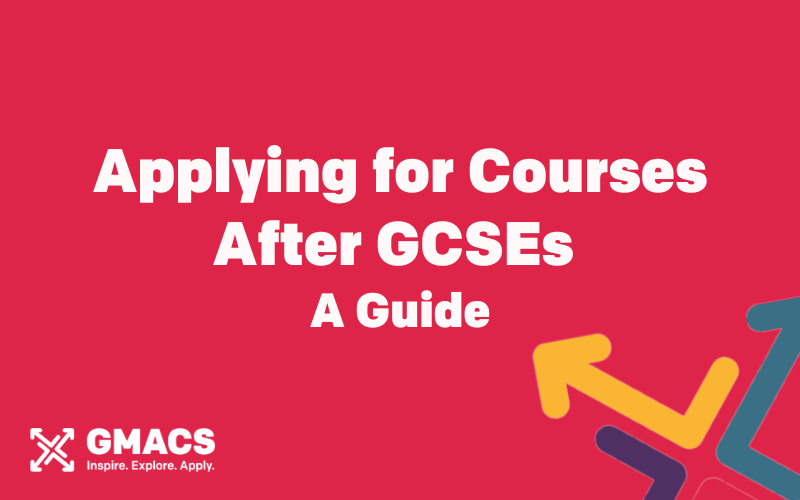Applying for Courses After GCSEs: A Guide
Deciding what to do after your GCSEs can be difficult. Your options can appear endless, leading you to feel overwhelmed.
To make the process easier, it’s wise to start planning your next steps before your GCSE exams start. As you enter Year 11, there will be lots of talk about what you’ll do next. Although this can be a little daunting, take advantage of this time.
It’s smart to get started earlier rather than later. You don’t want to be thinking of applications when you get closer to exam season. Revising for exams and applying for courses at the same time can quickly become too much!
Big decisions. What next?
A great way to help you decide what’s right for you is to do your research. See what courses are out there. With further study, there’s the opportunity for you to choose a course in something you’re passionate about. Think carefully about what you want and what course could help you achieve your goals.
Ideally you don’t want to be travelling too far to where you’re studying, as lengthy travel can be a real strain. You can explore the GMACS area pages to find colleges and sixth forms in your area – but don’t forget about Our Pass, too. Our Pass offers you free or cheaper travel across Greater Manchester. You can also use the Bee Network journey planner to explore what public transport may be available to help you travel to your chosen college, sixth form or training provider.
Get visiting!
Many colleges or other training providers will put on open days or evenings. This gives you the opportunity to look around and speak to the staff. Some student volunteers may even be there to tell you about their experiences.
Going to visit the place you’re hoping to study at can be a helpful experience. It’s important to use your imagination. Ask yourself, can I see myself here? Do the staff and students appear supportive? Is the course right for me? These are important things to consider.
Also, make sure to ask a lot of questions whilst you are there. Don’t be shy! The staff and students at these events are there to answer your queries. Having a parent or guardian present will also help you with understanding all the information.
By doing this, you’ll be leaving with a good idea of what kind of experience they can give you.

Now you know. It’s time to apply
You’ve done the research, and now the time has come to apply. Remember that many courses will want different qualities in their students. It all depends on what course you chose to do, whether that be an Apprenticeship, T Level, A level or BTEC. Read the course details thoroughly to see what they’re looking for in their candidates. Remember that this goes both ways – so match your own skills to what your chosen college or training provider is looking for.
Some courses may ask you to write a personal statement. This would mean explaining more about you as a person and why you want to do the course. Programs may ask you to do this, so they can get a better understanding of who you are. This is your time to shine. Don’t be afraid to sell yourself.
Writing a personal statement can feel scary if you’ve never done one before. Remember, it’s okay to ask for help. This could be a parent or guardian, someone from your current school, or a support worker or other helper you may have.
Interviews
This won’t apply to all, however there are some courses that will ask you to interview. Not to worry! Interviews are something all of us will do at one time or another. Getting lots of practice early in life will help you when you’re applying for jobs later.
Remember that the interview is an opportunity for you to demonstrate why you want to do the course, and for the teachers or course leaders to find out more about you. It’s just like the personal statement – so talk honestly about yourself, your skills, and what you want in the future!
If you are asked to interview, make sure you’re well prepared and ask questions. Our Curriculum for Life article has lots of advice on how to ace that interview.

The waiting game
Yes, it can be painful. But these things can take months and sometimes it all depends on what your grades are. Remember, all good things take time.
Don’t spend your time waiting around and wondering whether you’ve got a place on the course or not. This is a recipe for disaster, and the worry will only make you feel worse.
Keep yourself busy, and make sure that you have a plan B, or even a plan C, just in case things don’t go your way. Besides, with all the coursework and exams you’ll be doing for your GCSEs, you’ll have too much going on to worry!
You may find out that you’ve been unsuccessful. Some things aren’t meant to pan out as we think they should. It’s not rejection it’s a redirection! It will all work out in the end.
It can be a lot to consider everything, but as stressful as the process can be, the results are worth it. So good luck!


